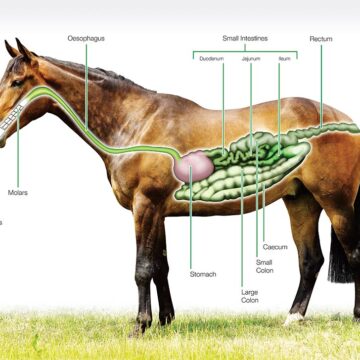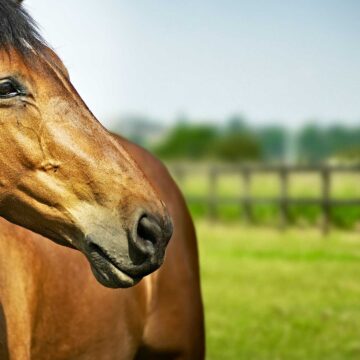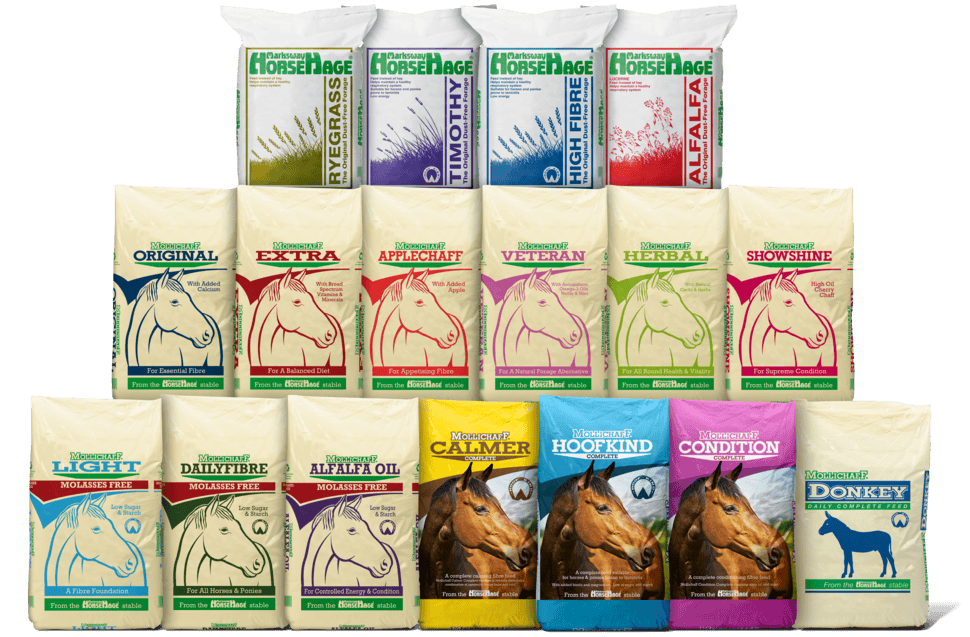We are the leaders in dust-free forage and, because of this, are often asked for advice on feeding. These pages will give you further information on feeding horses and answer some common questions you may have.
Equine Nutrition & Digestion
Over the last two decades, the degree of scientifically controlled research into equine nutrition and feeding has increased dramatically. Research has confirmed the importance of the forage fraction of the ration for all horses and ponies. In common with all higher animal species, in order to maintain health and condition, the horse needs to receive a regular supply of certain dietary components or nutrients. The horse derives these nutrients from the feed ingredients in his diet. In the wild, the horse would wander many miles searching for grass and other herbage to supply his daily nutrient requirements.
Many modern horses only have restricted access to pasture and that pasture might contain only a limited number of plant species. Thus, the modern horse may not be able to meet his total daily nutrient requirement from his pasture. The available pasture provides sufficient levels of some nutrients but not of others and thus, the horse needs to receive supplemental nutrients in the form of concentrate feeds.
The nutrients the horse requires on a daily basis are protein, energy, fibre, vitamins, minerals and water. The horse, through evolutionary adaptation which has occurred over a period of 65 million years, has become a ‘trickle feeder’. His digestive system, with its small stomach and very large, bacteria-filled hind gut is designed to contend with an almost continuous intake of grass and associated herbage.
Horse Digestive System
Food is moved along the horse digestive tract by...
Read more about Horse Digestive SystemRespiratory System and Environment
Respiratory Disorders in Horses Both the incidence and recognition...
Read more about Respiratory System and Environment




